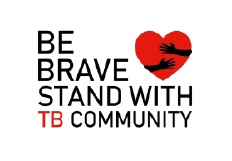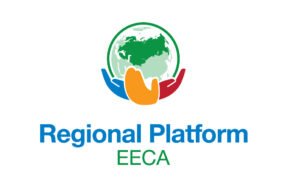INVEST IN WOMEN TO END TB – WHERE WOMEN LEAD, CHANGE HAPPENS
- 29.03.2022 21:31
- Post Views: 387



The Global Fund to fight HIV, Tuberculosis and Malaria (Global Fund) recently adopted its new Strategy: Fighting Pandemics and Building a Healthier and More Equitable World (2023 – 2028). The Strategy includes a reinforcing contributory objective to maximizing health equity, gender equality and human rights. At the same time the Global Fund adopted a new Global Disease Split at its 46 Board meeting which increased potential resources for TB. That is, any additional funds for country allocations above US$ 12 billion will be apportioned at 25% to TB for this grant cycle, compared to 18% in previous cycles. We hope that this direction – together with stronger efforts to support women’s rights – will be a game changer and lead to more gender transformative TB response.
While more men have TB, women are affected disproportionately. Women face greater stigma and discrimination than their male counterparts which can exacerbate their social and economic insecurity. Stigma also acts as a huge barrier for trans persons. Women may have difficulty gaining access to TB services because male family members are unwilling to pay for these services and often women’s health may not be considered as important as male counter parts, or because TB in women is more stigmatized than in men. Gender impacts the risk of infection and disease, timely diagnosis, treatment access, treatment adherence and, all-in-all, the severity of the impact of TB on a person’s life, from the onset of symptoms to getting back on track post recovery. A gender-based approach to TB, is committed to and forefronts the socio – economic, legal and cultural issues that are the root cause of gender inequality. The health of millions of women, transgender and non-binary people suffer gravely due to gender inequality.
This World TB day, The Global Coalition of TB Advocates (GCTA), Women4GlobalFund (W4GF) and TB Women Global call for a gender transformative programming within TB responses. We call on countries to prioritise a TB response that is gender sensitive and equitable. The gender assessments through the gender assessment tool for national HIV and tuberculosis (TB) responses can help to change the status quo where women and other marginalised groups are left behind. The Stop TB Partnership has developed a Protocol to conduct an integrated Tuberculosis (TB) Communities, Rights and Gender (CRG). This protocol is informed by the UNAIDS gender assessment together with national TB programmes and TB affected communities.
Too many women and girls continue to face barriers to accessing TB prevention, diagnosis, treatment, care and support services. This has been exacerbated by COVID-19 which has reversed significant gains in the response to HIV, TB and malaria, including an increase in TB deaths which was last seen over a decade ago.
We must build political will to ensure that TB responses are conceptualised and implemented with different genders in mind. For investments strategies to work, communities affected by TB must be at the centre of TB responses. This can only be realized if the Global Fund:
- Delivers a gender equity approach to TB responses. This means that the Global Fund must directly push to ensure that countries who are accessing Global Fund responses for TB responses at minimum have implemented gender assessments and that these inform ongoing or new proposals submitted to the Global Fund.
- Invests to ensure that TB responses reach women and girls affected by TB. This means prioritising community and women led responses to TB so that women and gender minorities are better represented across all levels of TB response structures and be able to access services that are fit for purpose. Our collective advocacy must continue to shift the paradigm of a medicalised response to ‘A people centered rights based TB response’ (The GCTA). It also means meaningful community engagement that is inclusive and representative of the voices of women to inform priorities, actions and monitoring that can challenge TB related stigma and discrimination. We draw your attention to the many refugees from Ukraine fleeing a devastating war perpetrated by Russia – many are women and their children[1] – whose TB treatment will not continue. It is in places like this where much more must be done. We call for more investment to women led organisations who are reaching communities in hard to reach settings, in and post war settings; reaching women on farms, in informal settlements and in mining communities.
- Work with technical agencies to ensure that tools and resources are accessible in local languages, and are informed by diverse communities of women – especially those from key affected populations who are most marginalised. Our global responses require the implementation of tools that recognise the reverence of community led monitoring and feedback mechanisms in the implementation of TB programmes. “Where women lead, change happens” (TB Women).
We need to move beyond the rhetoric and ensure investments and commitments are translated into actionable priorities that speak to the needs of communities affected by TB – especially in the context of COVID-19.
#Investincommunities
#EndTB
Global Coalition of TB Advocates (GCTA) is a coalition of TB affected individuals bringing the lived experience of TB to the global, regional and national platforms towards a people-centered rights-based response to TB. Email: communication@GCTACommunity.org I Facebook I Twitter
TB Women is a global women-led Network of TB affected women across the globe, that have come together to provide leadership, coordination, and respond to issues related to TB and gender equality and women’s rights.Facebook I Twitter
W4GF is a dynamic global platform of women and gender equality advocates who share a deep commitment to ensuring that Global Fund programmes are gender-transformative to meet the rights and priorities of women and girls in all our diversity. For more information, please contact Sophie Dilmitis or Fezile Kanju, co-lead Global Coordinators, WEB | FACEBOOK | TWITTER
[1] Access to tuberculosis (TB) prevention and care is severely lacking when it comes to children and adolescents.
Services for migrants and refugees from Ukraine – HIV/TB care with a focus on key populations
Due to the increasing flows of refugees from Ukraine because of Russia’s invasion of Ukraine, the EECA Regional Platform created a spreadsheet to fill contacts details of face-to-face and online services for refugees and migrants (with a focus on HIV/TB care and key population groups).
Regional Platform – EECA
This web-resource is a part of new regional communication and coordination project “Regional Civil Society and Community Support, Coordination and Communication Platform - EECA”, implemented by Eurasian Harm Reduction Association (EHRA).
Tags
See also
-
EECA’s Regional Platform monthly Newsletter #20, January 2026 27.01.2026 12:58
-
Global Fund Eligibility List 2026 27.01.2026 11:19







